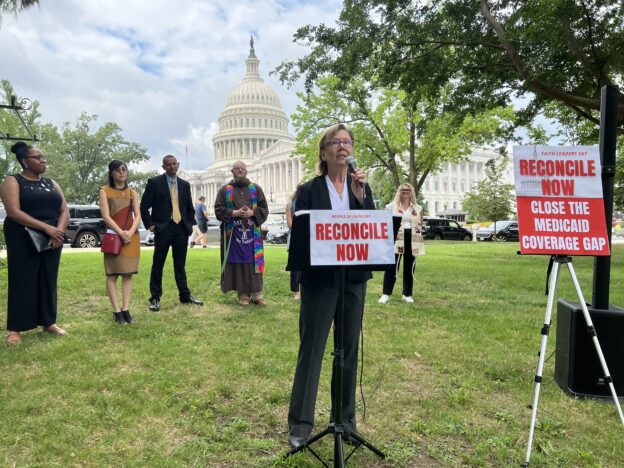
New Agreement Would Advance Healthcare, Tax Justice, and Climate Protections
Laura Peralta-Schulte
August 1, 2022
On Wednesday, July 27, Senate Majority Leader Chuck Schumer (D-NY) and Senator Joe Manchin (D-WV) issued a joint statement announcing an agreement on moving the fiscal year 2022 budget reconciliation process forward. This announcement was welcome after months of ups and downs in Senate negotiations since the House passed its budget reconciliation package last fall.
This new bill—the Inflation Reduction Act—addresses tax reform, prescription drug reform and healthcare costs, as well as climate change. If passed, this bill would be a huge accomplishment by beginning to require the wealthy and corporations to pay their fair share of taxes, while tackling the long-standing crises of healthcare costs and climate change.
Key tax provisions in the Inflation Reduction Act include:
- $313 billion in revenue raised from a 15% corporate minimum tax. This is critical to ensure that wealthy corporations pay taxes.
- $124 billion in revenue raised from better IRS tax enforcement. This provides the IRS with money to improve customer service systems as well as ensuring the wealthy pay what they owe.
- $14 billion in revenue raised from closing the carried interest loophole.
Key healthcare provisions in the Inflation Reduction Act include:
- Prescription Drug Pricing: The legislation empowers Medicare to negotiate prescription drug prices directly, ensuring that seniors get better deals on their medications, and caps Medicare beneficiaries’ out-of-pocket costs for drugs at $2,000 per year.
- ACA Premium Tax Credits: The Inflation Reduction Act extends enhanced Affordable Care Act premium tax credits for the next three years to enable working families and individuals support to pay for insurance through the exchange.
Key climate provisions in the Inflation Reduction Act include:
- Incentives for Consumers to Go Green: The legislation provides money for home energy rebates, consumer tax credits for energy-efficient homes and vehicles, and grants to make affordable housing more energy efficient. These measures would help reduce energy costs for families by more than 10% on average.
Unfortunately, this package leaves out high-level policy priorities for us at NETWORK including Medicaid expansion, paid leave, funding for affordable housing, expanding the Child Tax Credit, and more. However, given the political and time constraints, this bill will do a lot to advance economic justice and address other problems in healthcare and climate.
No Republican Senators support this bill, and one Senator, Kyrsten Sinema (D-AZ), is the only Democratic member who has not yet expressed her full support for the bill. Democrats need all 50 members of their caucus to vote “yes” to pass the legislation. Senate Democratic leadership is planning a vote on this package later this week.







